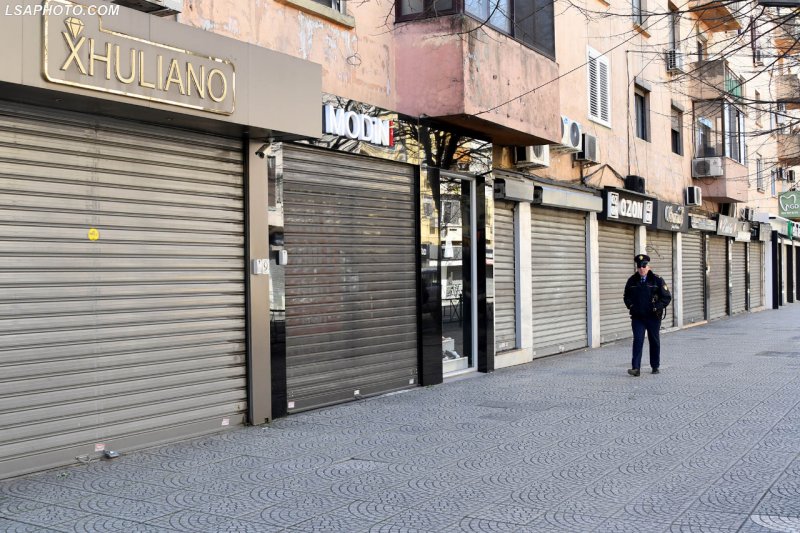Albanian Economy Has Lost EUR 1 Billion Due to Pandemic
The Covid-19 pandemic has dealt a severe blow to the economy this year, with ever-increasing losses.
According to INSTAT, the economy fell by almost 3.5% in the third quarter, after shrinking by 10.2% in the second and 2.5% in the first.
According to official INSTAT tables, for the first 9 months of 2020, gross domestic product (value of final goods and services produced by the economy for a certain period of time) was ALL 1.17 trillion (EUR 9.4 billion). Compared to the same period a year ago, the economy has produced about ALL 90 billion (EUR 720 million) less.
If the whole world were not conquered by the pandemic and its consequences, the domestic economy was projected to grow by 3-4% in 2020, while inflation would fluctuate at 1.5-2%. Therefore, in addition to the decline compared to a year ago, the economy has lost EUR 300 million for 9 months, which is the missing growth if the pandemic had not erupted.
As a result, for the 9 months, the losses caused by the pandemic (decrease compared to last year and missing growth) have exceeded EUR 1 billion. This is the first time, at least since 2009, when INSTAT reports data, that the value of the gross domestic product is declining.
INSTAT data show that the strongest contraction was in the second quarter (EUR 570 million less than the same period a year ago); -EUR 94 million in the first and -EUR 130 million in the third.
The most affected sector was “Trade; transport; accommodation and food service activities â€, which has circulated about EUR 250 million less, in a signal of weak consumption and the consequences that have given that accommodation and food service activities decline tourism (for 9 monthly (inflows of foreign nationals for the period in question fell by 61% or 3.3 million tourists less).
The second sector with the strongest decline is the total industry (-EUR 170 million), where the biggest contraction was in the extractive industry, while in April some major oil producers, including Bankers Petroleum, temporarily stopped production. Less affected was the manufacturing industry, which revived especially in the third quarter.
Scientific, professional, administrative and support activities have circulated about EUR 90 million less. Less affected were financial services and insurance, construction, agriculture, while the only one that has continued to grow in times of pandemic is real estate activity (see graph: Annual change of GDP at current prices, in million ALL 9 million 2020 / 9 million 2019).
According to market information, September was the best month after the pandemic, reflected in the October budget revenues (which show the performance of the previous month), which were the highest since the pandemic and at the same level of a previous year.
The performance of September was also influenced by the higher inflows of Kosovo citizens, which were over 40% higher on an annual basis. Subsequently, the deterioration of the pandemic situation and partial restrictions are estimated to have negatively affected the economy again in the third quarter. Especially in December, which is usually a month when trade and services activity is revived due to the holidays, consumption is proving weak, after new austerity measures, risking that for the fifth consecutive quarter, the economy remains in negative territory.
For the 9 months, the average GDP decline according to preliminary data of INSTAT is about 5.4%, the highest since 1997, but still remains lower than the most negative scenario of the European Bank for Reconstruction and Development of -9 %.
(Source: Monitor)













